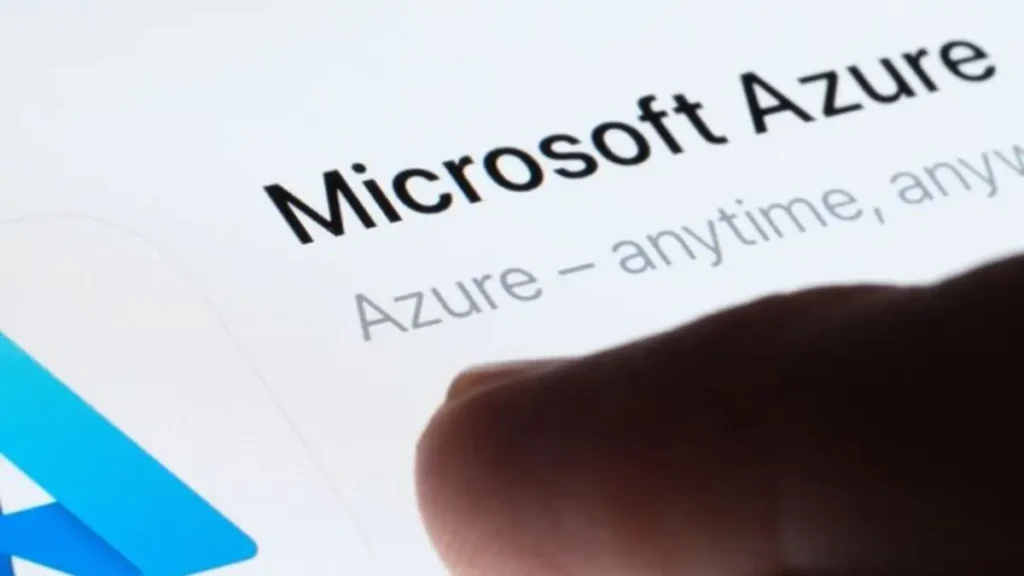Tech giant Microsoft has found itself at the center of a global controversy after reports alleged that its cloud computing platform, Azure, was being used by the Israeli military for mass surveillance of Palestinians. Following the claims, the company announced a formal and urgent external investigation, raising questions about the intersection of technology, human rights, and international law.

Read Now: Microsoft Copilot 3D Stuns Creators
Allegations Against Microsoft’s Cloud Platform
The controversy stems from a joint investigation conducted by The Guardian, +972 Magazine, and Local Call. Their findings suggest that Israel’s secretive intelligence unit, Unit 8200, relied on Microsoft’s Azure cloud infrastructure to store and process enormous amounts of intercepted communications from Palestinians living in Gaza and the West Bank.
According to leaked documents and interviews with individuals linked to both Microsoft and Israeli intelligence, the system—operational since 2022—has been capable of archiving millions of phone calls daily. These calls were reportedly stored on servers located in Europe, raising concerns over compliance with privacy regulations and Microsoft’s own stated policies.
How the Surveillance System Allegedly Works
The leaked materials describe a cloud-powered system capable of capturing and categorizing vast amounts of voice data. Sources from within Unit 8200 claim the intelligence gathered has been used in military operations, including:
- Guiding airstrikes in Gaza.
- Identifying suspects in the West Bank.
- Enabling blackmail tactics by exploiting private conversations.
- Arbitrary detention of individuals based on intercepted data.
If true, these practices not only raise ethical questions but may also violate international human rights law, which prohibits mass surveillance without due legal process.
Microsoft’s Compliance Under Scrutiny
Microsoft’s terms of service explicitly prohibit using its platforms for broad, indiscriminate surveillance of civilians. Yet, the allegations suggest a clear conflict between its stated policies and how its technology might have been deployed.
In a statement, Microsoft said it had already conducted an internal review earlier this year, which found “no evidence to date” that its technology was being used to harm people in conflict zones. However, the company acknowledged that the new revelations were serious enough to warrant an external probe.
To ensure transparency, Microsoft has appointed Covington & Burling LLP, a Washington-based law firm known for handling high-profile corporate investigations. The company has pledged to make the findings public once the inquiry is complete.
Rising Pressure From Activist Groups
The controversy has intensified with mounting criticism from civil society and human rights activists. A worker-led campaign titled “No Azure for Apartheid” has been gaining momentum, demanding that Microsoft cut ties with the Israeli military.
Activists argue that by providing technological support, even indirectly, Microsoft is complicit in the systemic oppression of Palestinians. They point to previous instances where technology companies have faced backlash for government surveillance programs—most notably, Google and Amazon’s controversial contracts with defense agencies.
A spokesperson from Microsoft, however, defended the company’s position, stating:
“Microsoft was not aware of the specific nature of the data stored by Unit 8200. Our collaboration with the Israeli government has been limited to strengthening cybersecurity and preventing cyberattacks, not surveillance of civilians.”
Israel’s Military Response
The Israeli military has strongly denied the allegations, claiming that its agreements with global tech companies are legally supervised and compliant with both local and international law.
Officials argued that intelligence gathering is a necessary measure for national security, especially given the threats from militant organizations operating in Gaza. They dismissed the accusations of misuse, describing them as politically motivated and lacking concrete evidence.
Still, the sensitive nature of surveillance activities, combined with the potential misuse of civilian data, has fueled concerns worldwide.
Global Implications for Microsoft
This probe has implications that extend far beyond Israel and Palestine. Microsoft, one of the world’s most trusted cloud providers, works with numerous governments, defense agencies, and international organizations. Any finding that its services were misused could undermine confidence among global clients.
Industry analysts warn that the controversy could also reignite debates around ethical responsibilities of tech giants. With artificial intelligence and cloud computing increasingly integrated into defense and intelligence operations, companies like Microsoft face growing scrutiny over how their platforms are being deployed.
Historical Context: Big Tech and Surveillance
This is not the first time a major technology company has been embroiled in surveillance controversies:
- Google’s Project Maven (2018): Sparked internal protests after it was revealed that AI tools were being used for U.S. military drone operations.
- Amazon Web Services (AWS): Faced criticism for providing facial recognition technology to law enforcement agencies accused of racial profiling.
- Facebook (now Meta): Has been repeatedly accused of failing to protect user data from misuse by governments and third-party groups.
The Microsoft case adds another chapter to the growing tension between technological advancement and human rights protection.
What Comes Next?
The investigation led by Covington & Burling is expected to take several weeks, if not months. Microsoft has promised a transparent process, but whether the findings will satisfy critics remains to be seen.
If the allegations are substantiated, the company could face:
- Legal consequences under European data protection laws, given the storage location of the intercepted data.
- Reputational damage that may impact its government contracts worldwide.
- Internal dissent, as more employees question the ethical boundaries of Microsoft’s partnerships.
For now, the tech giant maintains that it is committed to human rights principles, but the credibility of that claim depends heavily on the outcome of the probe.
The Microsoft–Israel surveillance controversy is more than just a corporate investigation; it highlights the growing dilemma faced by global tech companies operating in politically sensitive environments. While Microsoft insists on its commitment to ethical use of technology, the pressure from activists, governments, and the public suggests that the world is watching closely.
As the probe unfolds, one thing is clear: the balance between innovation, security, and human rights is becoming one of the most urgent challenges of our digital age.